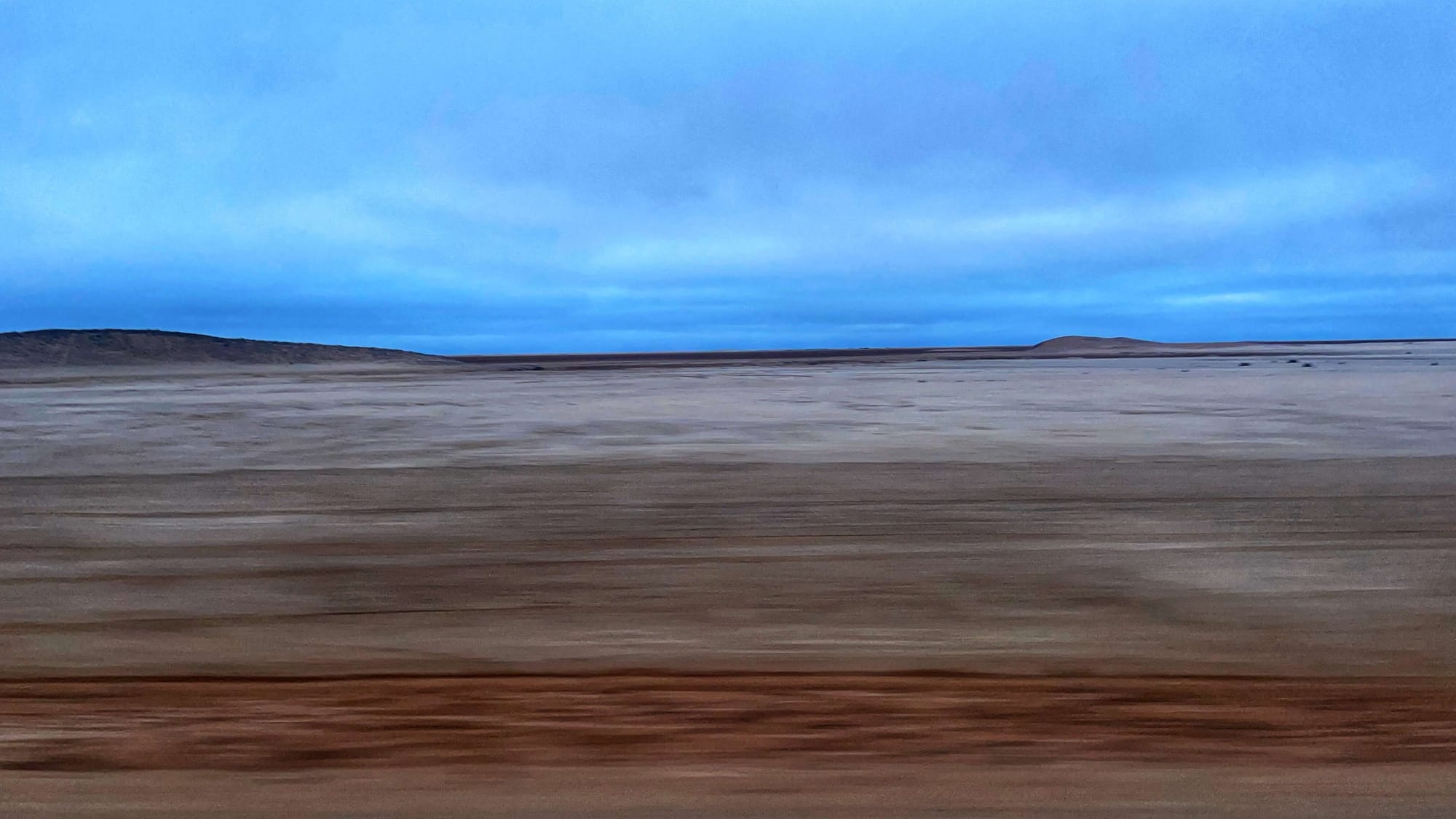This week, I came to the shocking realization that I'm open to the possibility that Santa is real.
In fact, I'm significantly more open to this possibility than I am to the possibility that a woman gave birth to a famous baby without ever having sex.
And the real irony of it is that I've come to this conclusion using Buddhist teaching – which says not to believe anything at all.
During my adult gap year, I spent a month in Australia volunteering at a Buddhist meditation retreat center, diving headfirst into the library of spiritual texts at my fingertips.
On the way to attaining nirvana, there are many states of consciousness that meditators experience, and report. I read about such mystical experiences in the books at the retreat center, though I'm sure you could find accounts on the internet. But the Buddha would not encourage anyone to believe any of those accounts, just as he did not encourage anyone to believe his own teachings and experiences. Rather, the Buddha shared his wisdom, his meditation techniques for cultivating that wisdom, and then encouraged his followers to develop their own spirit of inquiry. Investigate this for yourself. Find your own knowledge and truth.
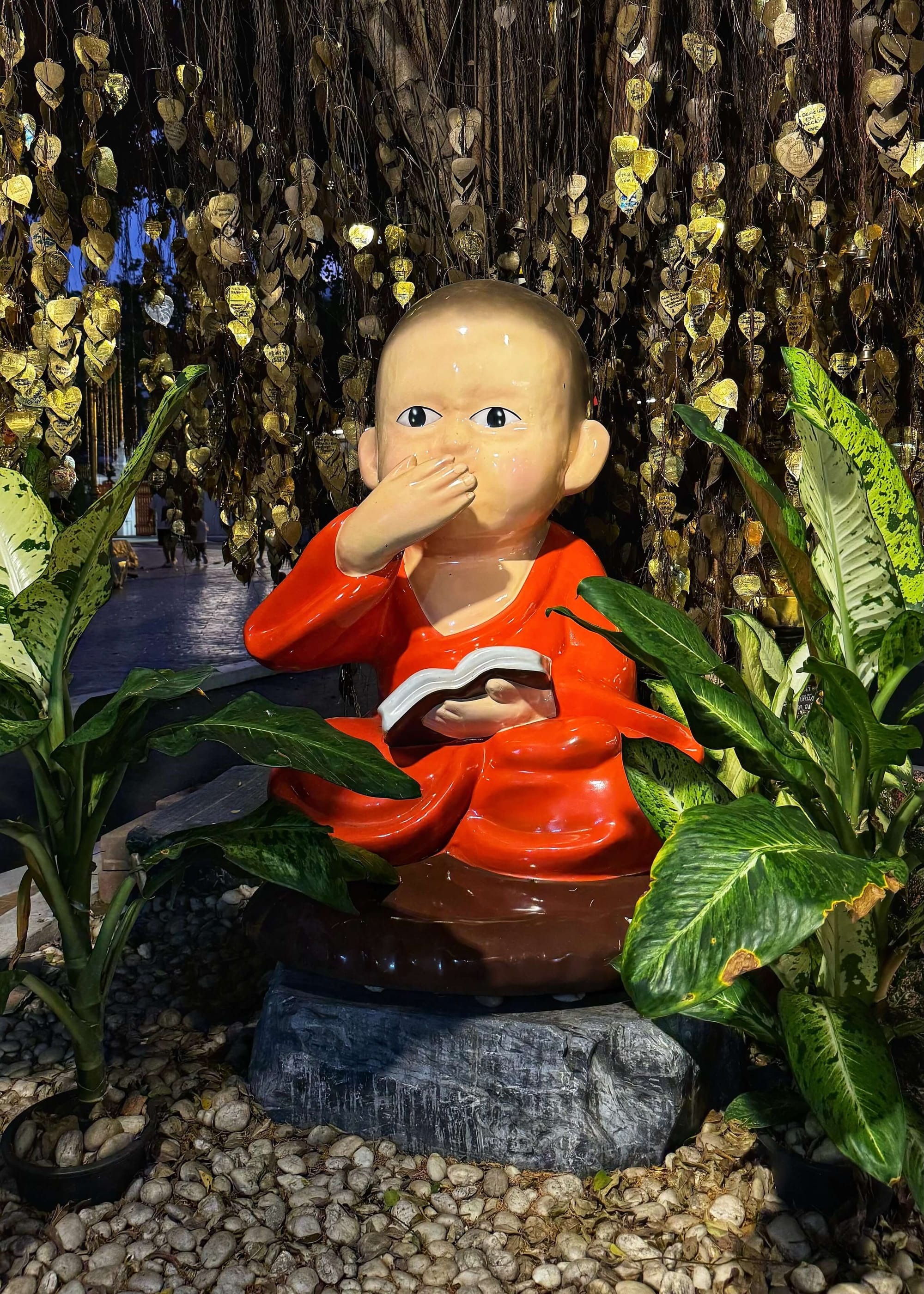
So this week I investigated a truth that I had been presented as a child, until one day the truth was completely flipped on its head.
Santa is real.
Actually, we lied to you. Santa is not real.
For some reason, we accept this reversal of the truth as readily as we accepted the truth to begin with. But now I'm wondering... how do we know?
Do I think that it is improbable that reindeer fly? That a man changes his body composition to fit down chimneys and deliver presents to the world? That there's a warehouse of slave labor in the North Pole that corporate America hasn't figured out how to seize and commoditize?
Definitely.
Do I think that it is improbable that the entire world is in cahoots on one story, one idea on which we can all agree?
Wait... definitely?
It's pretty improbable, huh, that parents everywhere have decided that yes, this is the story we are telling our children, even though none of us actually believe it is true.
There is not a single idea in the whole entire world that has more universal acceptance than Santa Claus.
🤯
I'm just getting started.
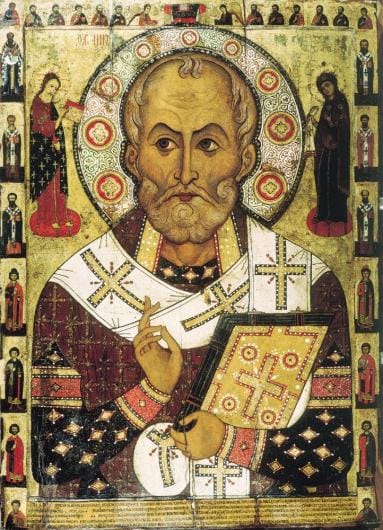
Let's say that you stay up all night waiting to see Santa Claus and he doesn't come. What exactly do you think that you are proving? That Santa Claus isn't real?
That's not exactly scientific now is it. All you've proven is that Santa didn't visit your one house on one night in one year. What about last year? What about next year? What about all the other houses in the world?
Also, who's to say that Santa visits houses at all? What if there's a widely accepted story of Santa that doesn't line up with the reality of who Santa is and what he does?
If Christ didn't actually die for your sins does that mean the man Jesus Christ isn't real?
Saint Nick was an actual person who actually helped the needy and sick. Saint Nick was a monk, so he did wear red robes, and there is a story of him throwing money at a house where people in need lived, and the money landing in stockings they had hung out to dry. Saint Nick wasn't actually fat, nor was he depicted in original artwork as fat or with reindeer or elves who made toys or really any of the magical, grandiose embellishments we've added to the story of Santa Claus as we know him today.
What seems implausible about Saint Nick today can be traced to a version of the story that is very plausible, and frankly, Christlike. Christ walked on water? Improbable. Christ was white? Also improbable. Does this mean Christ or Saint Nick don't exist, and didn't do good in the world? Nope. What it means is that they've been subject to artistic interpretation. Our stories of these figures have changed with each retelling – sometimes to tell a better story, and sometimes when we can't quite remember the details. The four Gospels are great evidence of this. It is likely that none of these guys actually knew Jesus and simply wrote down whatever they had heard.
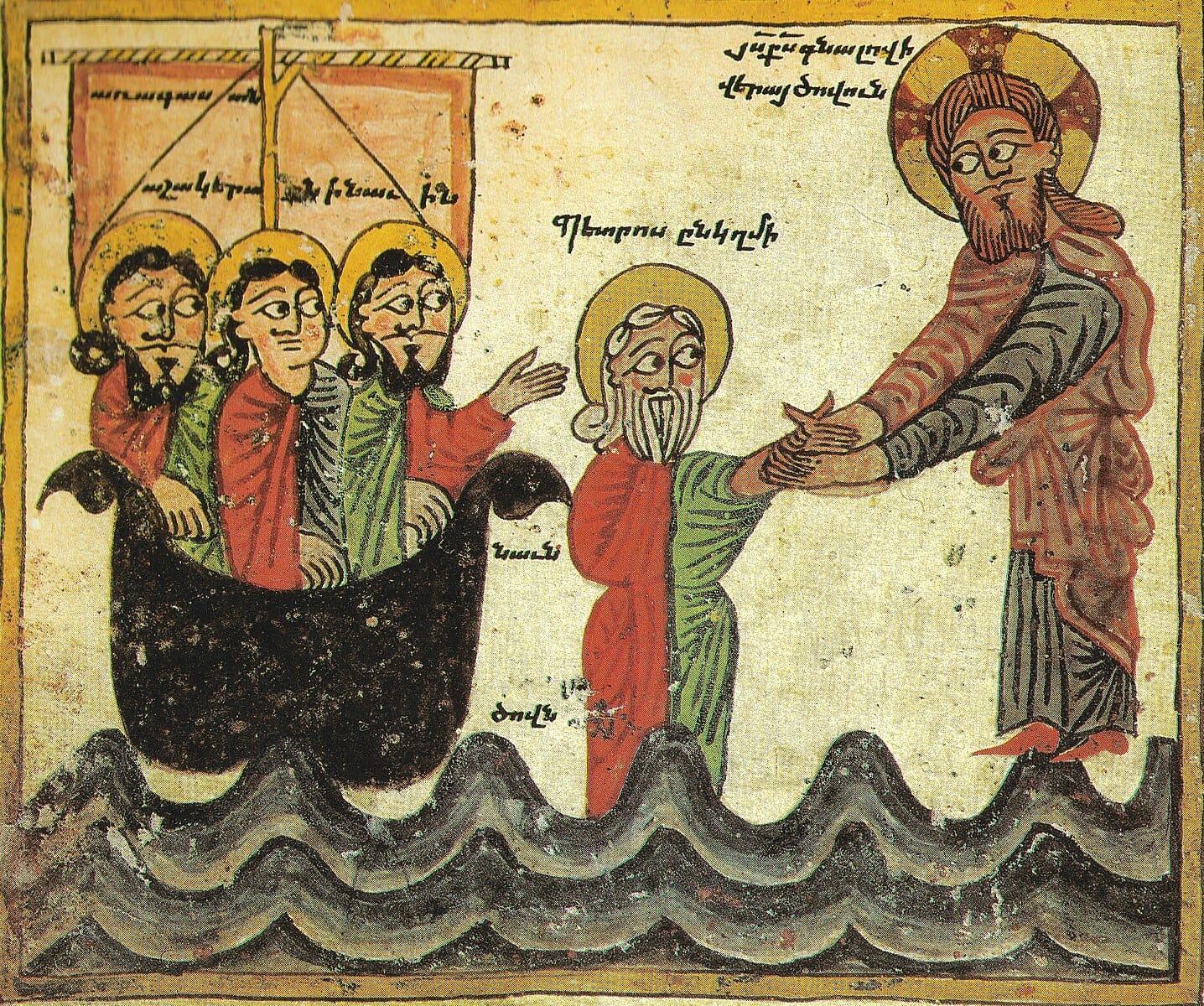
As a kid, did you ever play telephone? Where someone whispers a story in someone's ear, and then they whisper it to the next person, and then next person, and by the end of the line, the story has completely changed?
Stories are memories, and they change over time. Just because our memory is flawed, doesn't make what we are remembering any less real.
Saint Nick is as real as Jesus Christ and Mary, regardless of whether any of them have the superhuman qualities that they've taken on in the stories we tell about them thousands of years later.
Okay, okay, I hear you saying. So these real people were real. But we're not talking about were, we're talking about are. Present tense. Is Santa real?
If I follow the Buddhist line of inquiry, I can't say no. I also can't say yes. I can't prove it either way.
But I'm leaning yes.
😂
Let's say that we assume Santa is a historical figure, and not a person alive today, even though as I've already shown you, we can't exactly scientifically prove that to be true.
When Santa died, where did he go?
Where do souls go when the human form expires?
Where are you right now? In your body? In your mind? Above you looking down on your body?
Who am I? Where did I come from? Where will I go?
I don't know. Buddhists spend a lifetime meditating on these questions. Every major world religion attempts to explain life and what happens when we die but no one knows with certainty. It's the great mystery of life. A few religions believe in reincarnation, the idea that the soul persists beyond the physical form to take a new form. According to reincarnation, actually yes, Santa is real – whether he knows he's Santa or not.

I like the way the Buddhists approach it though. If you can't prove it, you can't definitively give an answer.
So why do I lean yes on the Santa debate? Simply because of the principle of physics that we have come to know as true: matter can neither be created nor destroyed.
We don't yet know what the soul is. Actually only 5% of the universe is matter, and the rest is "not matter" (creative) as in, we don't know anything about 95% of the universe, and yet here we are definitively proclaiming things like "Santa's not real" when the truth is we are largely fumbling in the dark about this place we inhabit, we know nothing about anything, and anything we do know might change tomorrow when we make a new scientific discovery. Kind of like feeling a granite countertop, turning on the light and discovering you're in the bathroom, not the kitchen.
I digress, but what I mean to say is that I lean toward the possibility that the soul falls under this principle of "cannot be created nor destroyed" and persists.
What this means is that beyond the possibility that Santa has been reborn as a new person, the soul of Saint Nick might still be present in our universe. It is entirely possible that the spirit of Saint Nick is flying all over the world to spur everyone to come together one day a year to be generous and kind to one another.
Hey wait a minute... that actually sounds like what we say. The Christmas spirit...
If you're still not buying it, forget the existential conundrum of Santa's soul, forget the modern day story – jolly fat man flying through the sky in a nine-reindeer-power sleigh – and focus on the concept of Santa, the idea that has permeated minds all over the world.
Even if Santa is only an idea, ideas are real.
As far as we know scientifically today, ideas exist in the mind. But what we don't yet have the scientific tools to understand is how an idea that exists in my mind can also exist in yours. Even if the details are slightly different, the idea somehow exists in both of our minds – or in the remarkable case of Santa, in everyone's minds – possessing this metaphysical, unifying quality that we can't yet explain. And just because we aren't capable of explaining something doesn't mean it isn't real.
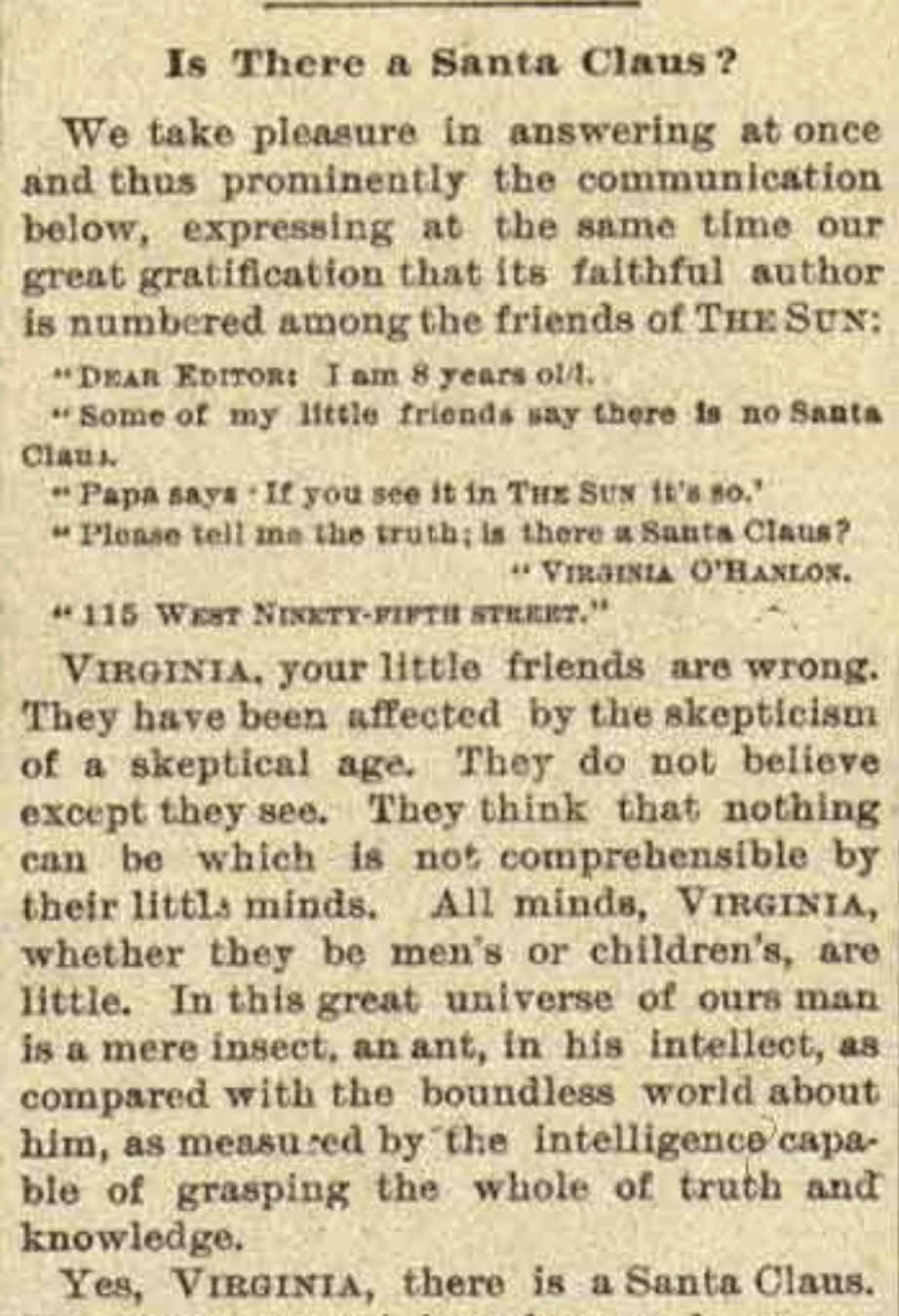
"Please tell me the truth," Virginia writes to The Sun in 1897 after her "little friends" say there is no Santa Claus. "Is there a Santa Claus?"
"Virginia," replies Francis Pharcellus Church, "your little friends are wrong. They have been affected by the skepticism of a skeptical age. They do not believe except they see. They think that nothing can be which is not comprehensible by their little minds."
If you click the image, you'll be taken to the full editorial. It's worth a read. He makes a number of excellent points, one of which is this: "The most real things in the world are those that neither children nor men can see." Is love not real?
Ideas are made real when we express them.
Ideas take on a physical dimension in language and art – the obvious case with Santa – but also when they drive material action. Families donate presents through toy drives to make sure every child has something to unwrap from Santa on Christmas morning. The idea of Santa is real enough to drive repeat human behavior – and good behavior, at that.
So, you ask, is Santa real?
Maybe. I'm open to the possibility. And the next time a child asks me "Do you believe in Santa?" do you know what I'm going to say?
Yes.
Because belief isn't about what's provable. Belief doesn't care about what's real or not real, what's true or isn't true. Belief is a choice. When it comes down to the Santa question, the only truth is that we don't know if he's real or not real, so we get to choose what to believe.
And it's so much more fun to go through life believing in magic. ✨


